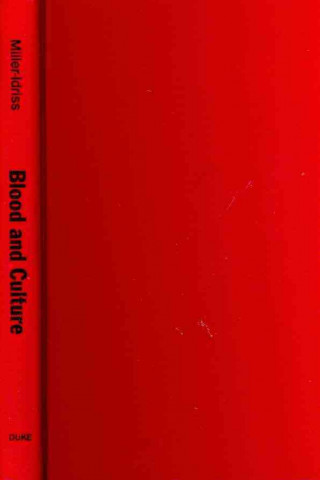
Kod: 04938992
Blood and Culture
Autor Cynthia Miller-Idriss
Over the past decade, immigration and globalization have significantly altered Europe's cultural and ethnic landscape, foregrounding questions of national belonging. In "Blood and Culture", Cynthia Miller-Idriss provides a rich et ... więcej
- Język:
 Angielski
Angielski - Oprawa: Twarda
- Liczba stron: 256
Wydawca: Duke University Press, 2009
- Więcej informacji o książce

128.08 €
Dostępność:
50 % szansa Otrzymaliśmy informację, że książka może być ponownie dostępna. Na podstawie państwa zamówienia, postaramy się książkę sprowadzić w terminie do 6 tygodni. Gwarancja pełnego zwrotu pieniędzy, jeśli książka nie zostanie zabezpieczona.
Otrzymaliśmy informację, że książka może być ponownie dostępna. Na podstawie państwa zamówienia, postaramy się książkę sprowadzić w terminie do 6 tygodni. Gwarancja pełnego zwrotu pieniędzy, jeśli książka nie zostanie zabezpieczona.Przeszukamy cały świat
Zobacz książki o podobnej tematyce
-

Komm, wir finden einen Schatz
8.76 € -

Der Briefwechsel zwischen Theodor Storm und Gottfried Keller
22.99 € -9 % -

Narrative of the Life of Frederick Douglass - An American Slave
15.52 € -

Private Equity as an Asset Class 2e
69.98 € -

Dental Ceramics
61.41 € -

Exploring Ethics - A Traveller's Tale
152.08 € -

21st Century Singer
51.23 €
Podaruj tę książkę jeszcze dziś
- Zamów książkę i wybierz "Wyślij jako prezent".
- Natychmiast wyślemy Ci bon podarunkowy, który możesz przekazać adresatowi prezentu.
- Książka zostanie wysłana do adresata, a Ty o nic nie musisz się martwić.
Powiadomienie o dostępności
Wpisz swój adres e-mail, aby otrzymać od nas powiadomienie,
gdy książka będzie dostępna. Proste, prawda?
Więcej informacji o Blood and Culture
Za ten zakup dostaniesz 321 punkty
 Opis
Opis
Over the past decade, immigration and globalization have significantly altered Europe's cultural and ethnic landscape, foregrounding questions of national belonging. In "Blood and Culture", Cynthia Miller-Idriss provides a rich ethnographic analysis of how patterns of national identity are constructed and transformed across generations. Drawing on research she conducted at German vocational schools between 1999 and 2004, Miller-Idriss examines how the working-class students and their middle-class, college-educated teachers wrestle with their different views about citizenship and national pride. The cultural and demographic trends in Germany are broadly indicative of those underway throughout Europe, yet the country's role in the Second World War and the Holocaust makes national identity, and particularly national pride, a difficult issue for Germans. Because the vocational-school teachers are mostly members of a generation that came of age in the 1960s and 1970s and hold their parents' generation responsible for National Socialism, many see national pride as symptomatic of fascist thinking. Their students, on the other hand, want to take pride in being German. Miller-Idriss describes a new understanding of national belonging emerging among German young people: one in which cultural assimilation takes precedence over blood or ethnic heritage. Moreover, she argues that teachers' well-intentioned, state-sanctioned efforts to counter nationalist pride often create a backlash, making radical right-wing groups more appealing to their students. Miller-Idriss argues that the state's efforts to shape national identity are always tempered and potentially transformed as each generation reacts to the official conception of what the nation 'ought' to be.
 Szczegóły książki
Szczegóły książki
Kategoria Książki po angielsku Society & social sciences Sociology & anthropology Anthropology
128.08 €
- Pełny tytuł: Blood and Culture
- Podtytuł: Youth, Right-Wing Extremism, and National Belonging in Contemporary Germany
- Autor: Cynthia Miller-Idriss
- Język:
 Angielski
Angielski - Oprawa: Twarda
- Liczba stron: 256
- EAN: 9780822345275
- ISBN: 0822345277
- ID: 04938992
- Wydawca: Duke University Press
- Waga: 499 g
- Wymiary: 229 × 155 × 20 mm
- Data wydania: 25. August 2009
Ulubione w innej kategorii
-

Revolt Against the Modern World
24.40 € -20 % -
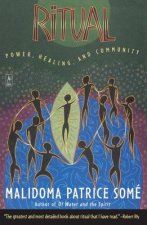
Ritual
11.08 € -31 % -

Watching the English
13.30 € -28 % -

Harmless People
17.34 € -13 % -

Exercised
12.90 € -22 % -

Continuum Concept
13.30 € -28 % -

Utopia Of Rules
16.13 € -23 % -

Catching Fire
12.90 € -25 % -

Totem and Taboo
6.75 € -28 % -
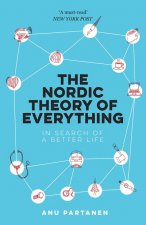
Nordic Theory of Everything
11.08 € -25 % -

Fragments of an Anarchist Anthropology
13.10 € -6 % -
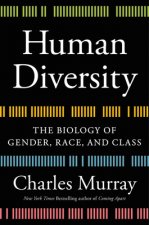
Human Diversity
28.23 € -21 % -

Continuum Concept
12.80 € -36 % -

World Until Yesterday
11.29 € -23 % -

Spirit Catches You and You Fall Down
17.84 € -6 % -

Crisis of the Modern World
28.53 € -

Scientific Study of Mummies
64.94 € -

Possibilities
19.25 € -19 % -

Deep Listeners
33.68 € -

Sick Societies
42.15 € -7 % -

Forms of Talk
34.99 € -1 % -

Serbs
45.68 € -

Anarchism
14.82 € -27 % -

Consider The Lobster
10.58 € -28 % -

Trickster Makes This World
11.29 € -28 % -

Combatting Cult Mind Control
20.26 € -

Kill All Normies - Online culture wars from 4chan and Tumblr to Trump and the alt-right
11.69 € -20 % -

Crisis of the Modern World
17.03 € -

How Forests Think
38.82 € -

Secret of Our Success
18.65 € -10 % -

Protestant Ethic and Other Writings
15.22 € -28 % -
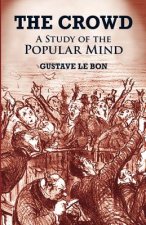
Crowd
10.58 € -19 % -

Evolution of the Human Head
59.29 € -1 % -

Limits to Medicine
14.51 € -23 % -

Chrysanthemum and the Sword
11.59 € -36 % -

Five Roles of a Master Herder
16.73 € -16 % -

Cambridge Encyclopedia of Human Evolution
99.74 € -

Patterning Instinct
19.35 € -27 % -
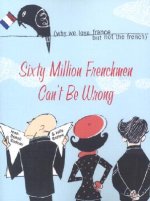
Sixty Million Frenchmen Can't Be Wrong
17.94 € -21 % -

Peoplewatching
17.24 € -28 % -

Society Against the State
24.20 € -6 % -
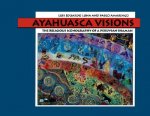
Ayahuasca Visions
32.47 € -19 % -

Face and Mask
60.40 € -
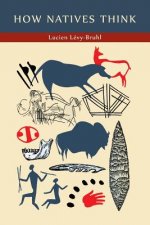
How Natives Think
22.08 € -

Bones of Contention
46.18 € -

Exploration and Discovery - Treasures of the Yale Peabody Museum of Natural History
24.40 € -9 % -

Introducing Anthropology
9.27 € -28 % -

Dark Shamans
35.19 € -

Homo Necans
36.10 € -16 %
Osobní odběr Bratislava a 2642 dalších
Copyright ©2008-24 najlacnejsie-knihy.sk Wszelkie prawa zastrzeżonePrywatnieCookies


 Vrácení do měsíce
Vrácení do měsíce Zdarma od 49.99 €
Zdarma od 49.99 € 02/210 210 99 (8-15.30h)
02/210 210 99 (8-15.30h)